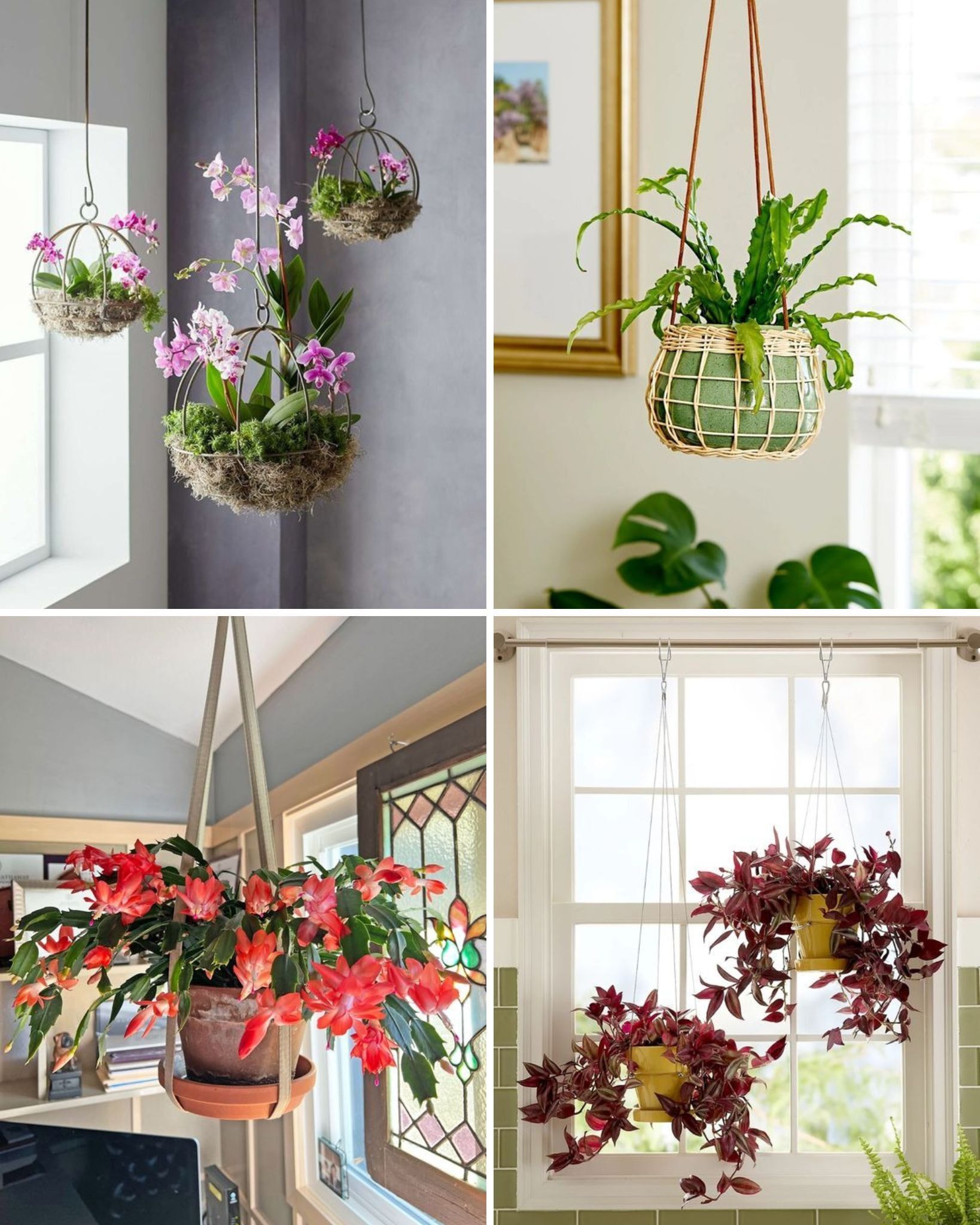Hanging plants are the go-to choices for plant parents who live in homes or apartments with minimal floor space, as they offer a clever and stylish solution to bring nature indoors without compromising precious square footage. However, hanging plants provide numerous health benefits beyond their aesthetic appeal that contribute to an improved living environment. As natural air purifiers, these green wonders absorb pollutants and toxins from the air, enhancing the overall air quality of your home.
If you’re seeking ideas to add life and visual interest to your cozy corners, you’ve come to the right place for ideas of incorporating hanging plants into indoor spaces.
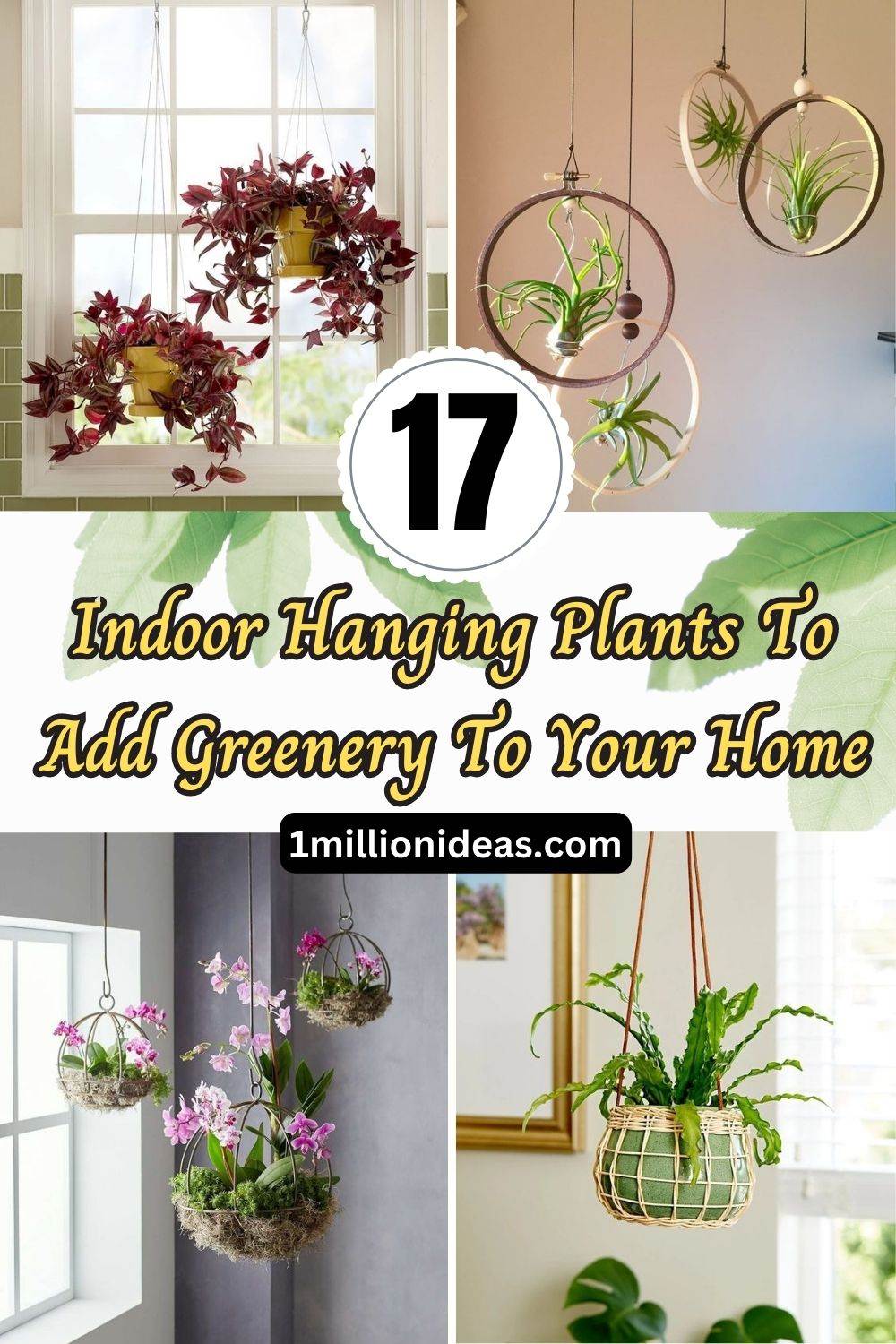
#1. Spider plant
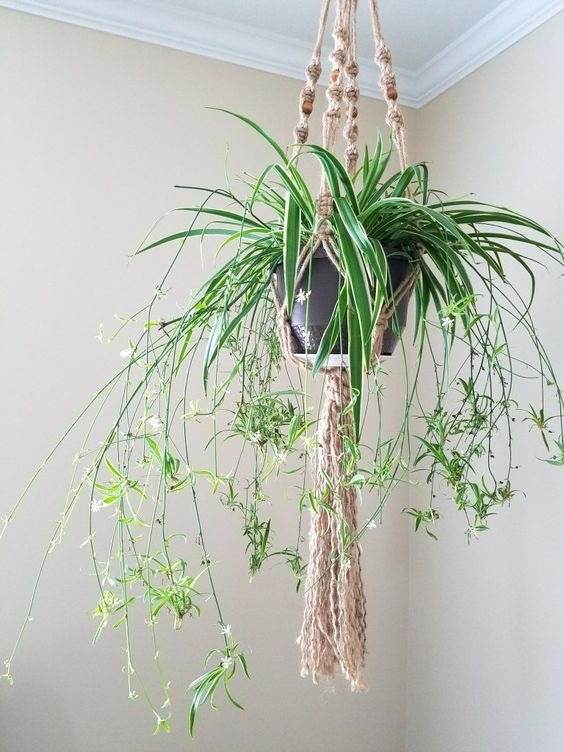
Spider plants have long, slender leaves that arch gracefully over the edge of the pot, creating a beautiful cascading effect. Spider plants also produce small white flowers and baby plants, called spiderettes, that hang from the mother plant like little spiders.
#2. Beetle peperomia
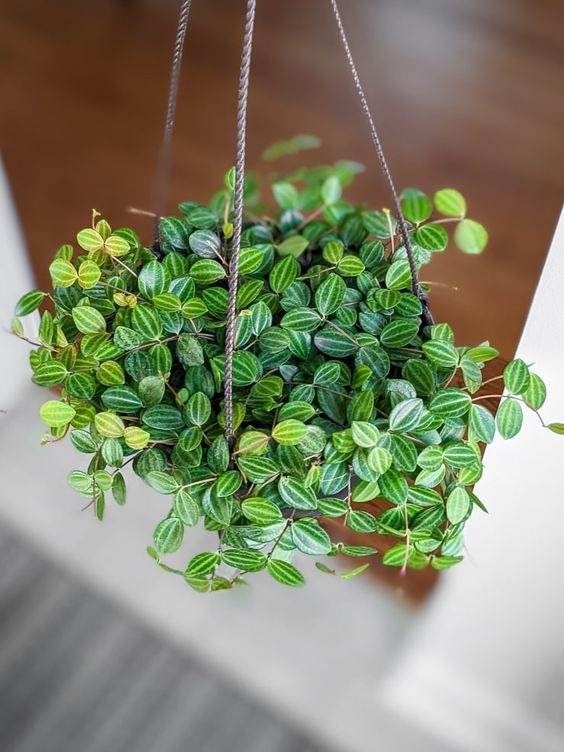
Beetle peperomia has small, round, succulent-like leaves that are striped with light and dark green, resembling little beetles. You can hang your beetle peperomia from hooks, brackets, rods, or chains, depending on your preference and space availability.
#3. English ivy

One way to decorate with English ivy is to display it on a shelf or table, where it can add some texture and interest to your space. You can use a pot that contrasts or complements the color of the leaves, such as white, black, red, or yellow.
#4. String of pearls
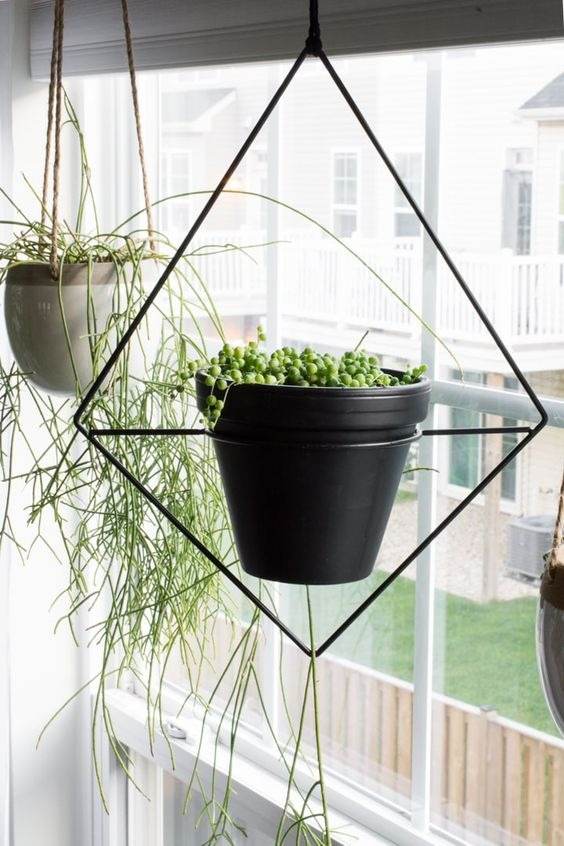
String of pearls is a stunning succulent, which has round, bead-like leaves that hang from long, slender stems. It is easy to care for and can grow both indoors and outdoors, as long as it gets enough light and water.
#5. String of hearts
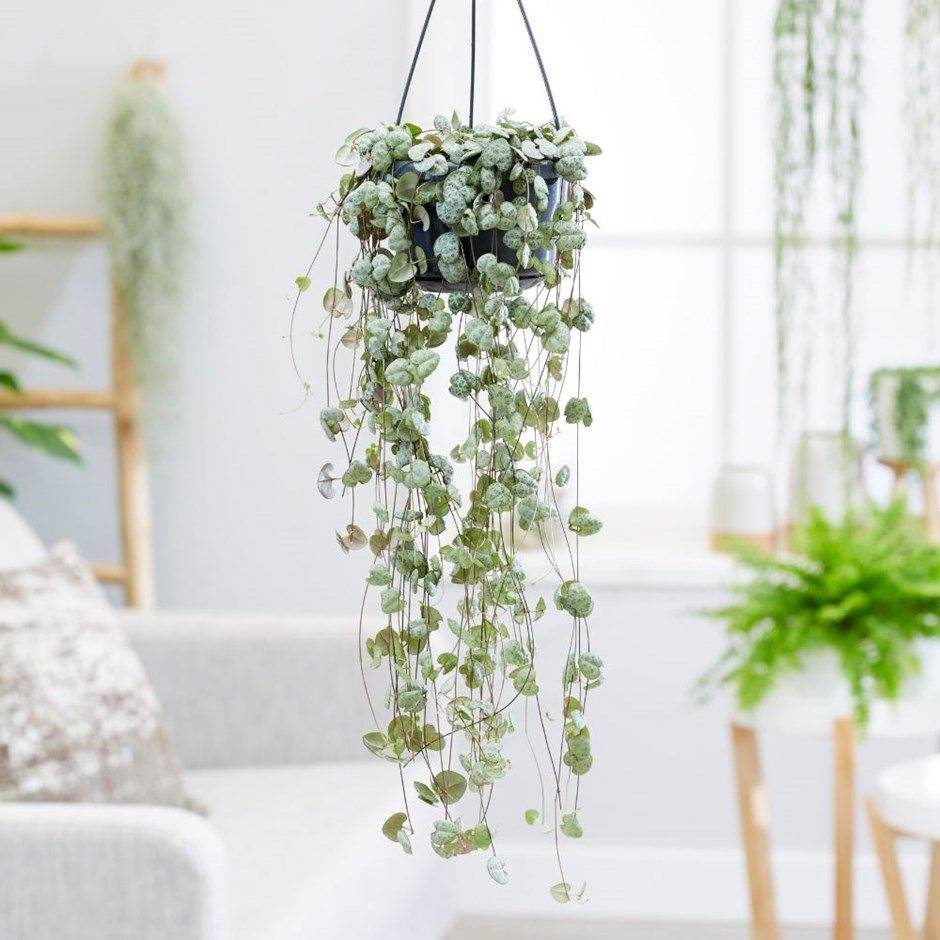
One of the most popular ways to display string of hearts is to hang it in a basket from the ceiling or a wall. This way, you can enjoy the graceful trailing vines of the plant and create a natural and cozy atmosphere.
#6. Burro’s tail
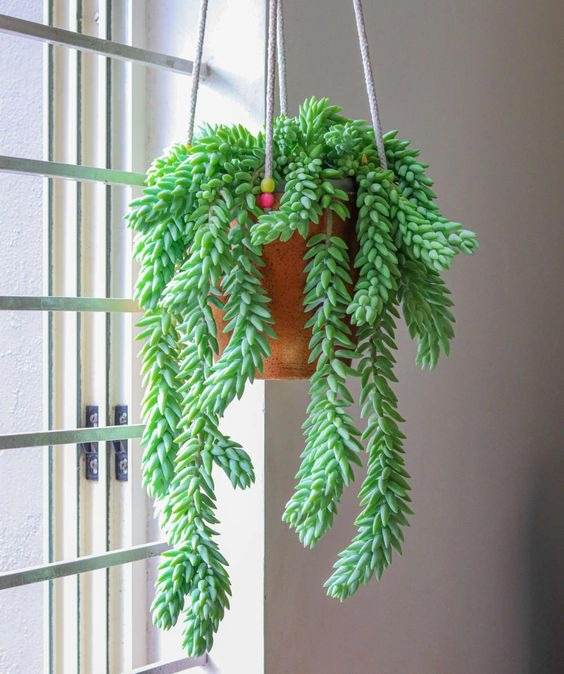
You can hang your burro’s tail in any room that has bright indirect light and enough space for the vines to grow. Another way is to place it next to other plants or objects that create a nice contrast or harmony, such as books, candles, vases, or figurines.
#7. Wandering Jew Plant

Wandering Jew plants are also known as inch plants, spiderworts, or zebrinas. They have attractive foliage that can be green, purple, pink, or variegated, and small flowers that can be white, pink, or purple.
#8. Pothos
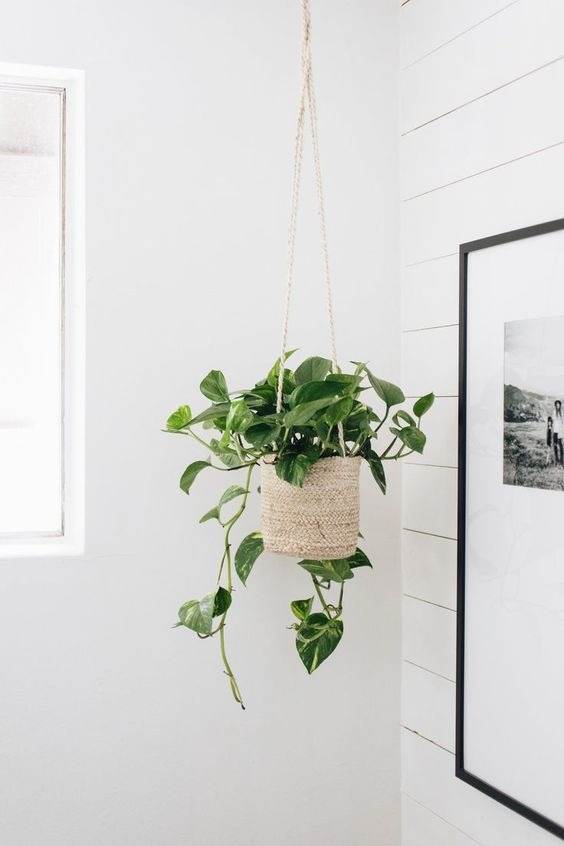
One of the simplest and most common ways to hang pothos indoors is to use a hanging basket. You can choose a basket that suits your style, such as metal, wicker, ceramic, or plastic.
#9. Grape’s ivy
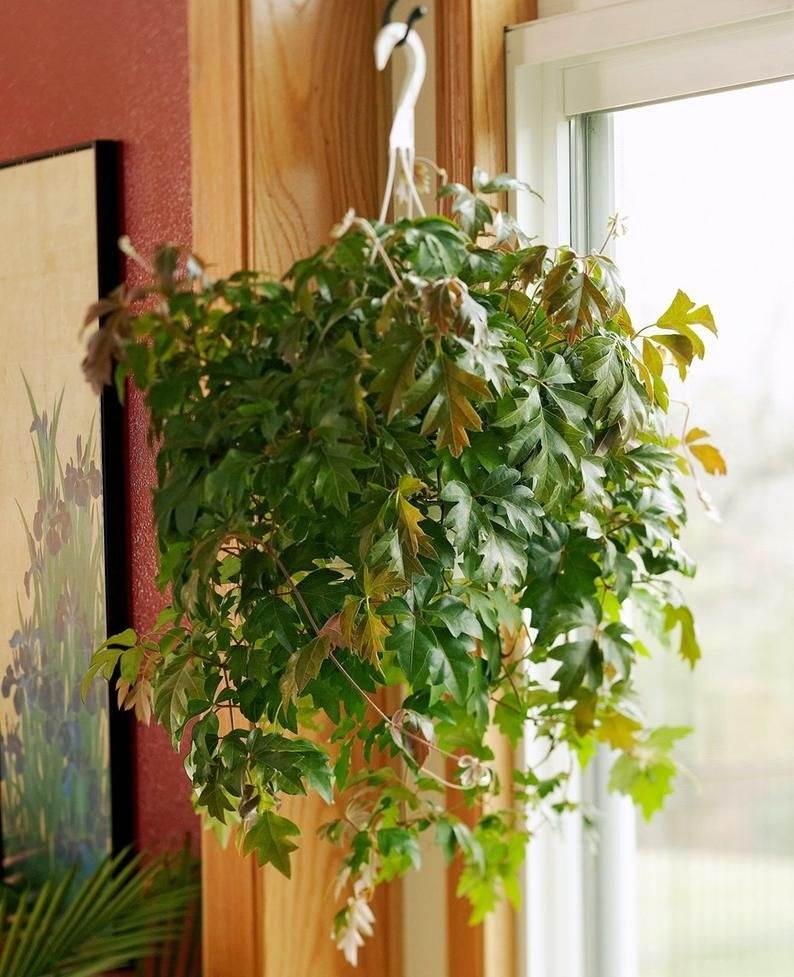
One way to hang grape ivy indoors is to use a macrame hanger. A macrame hanger is a decorative piece of knotted rope or cord that can hold a plant pot.
#10. Bird nest’s fern
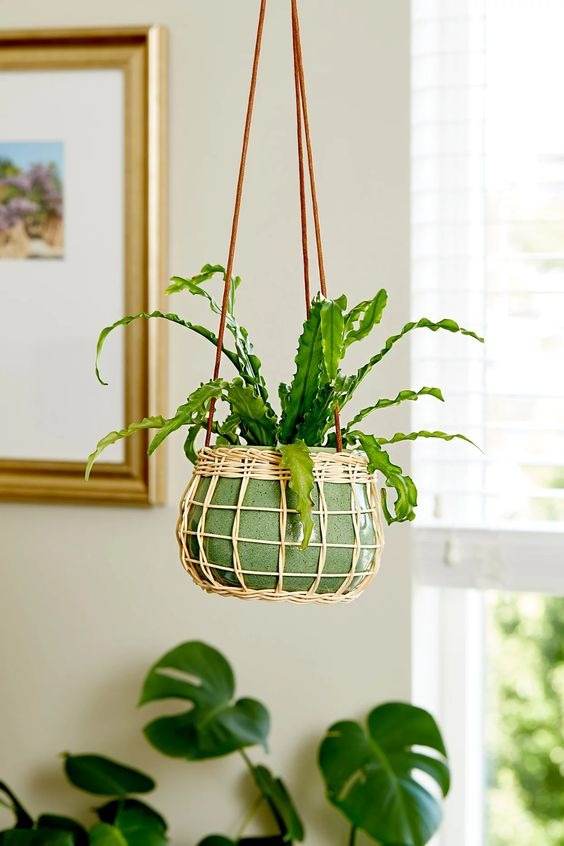
You should put your bird’s nest fern in a place with medium to bright indirect light or partial shade. Its soil should be evenly moist, but not soggy or dry.
#11. Boston fern

In contrast to several other ferns that have feathery leaflets, Boston fern has smooth, lance-shaped fronds. It prefers bright indirect light or partial shade.
#12. Maidenhair fern
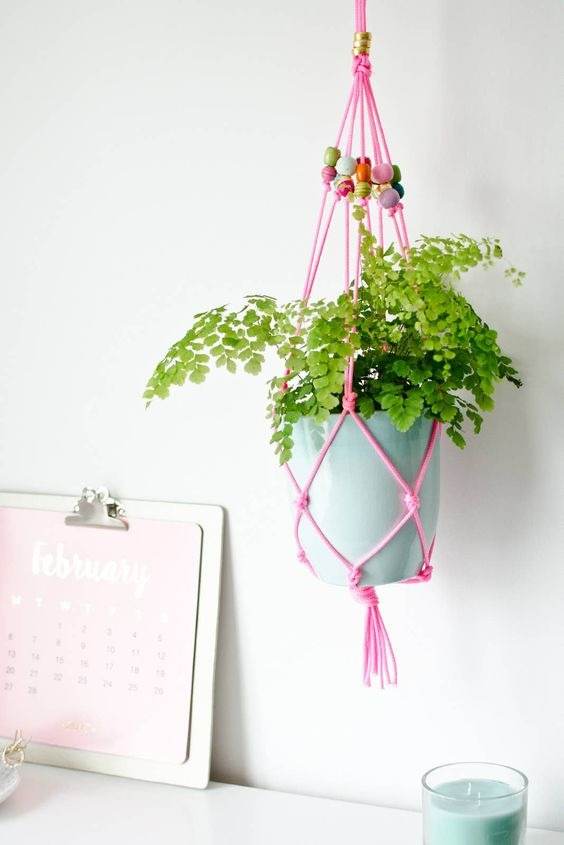
Maidenhair ferns have delicate, lacy leaves on wiry, black stems. One way to hang maidenhair fern indoors is to use a wall planter, which has holes at the bottom for drainage.
#13. Hanging tree cactus

Hanging tree cactus like to be kept moist but not soggy or dry. You can water them when the top inch of the soil feels dry to the touch.
#14. Tillandsia

Tillandsia are also known as air plants, because they do not need soil to grow. They absorb water and nutrients through their leaves, not their roots, so you can mist them regularly with a spray bottle, or soak them in a bowl of water once a week for 10 to 20 minutes.
#15. Hoya

Hoya plants have thick, succulent leaves and produce clusters of fragrant, star-shaped flowers that can be white, pink, red, yellow, or purple. They are beautiful and versatile plants that can suit any style of decor.
#16. Orchid

Orchids are epiphytic plants, which means they can grow on the surface of other plants, such as tree trunks or rocks, without needing soil. This makes them ideal for hanging from baskets, planters, or mounts.
#17. Christmas cactus
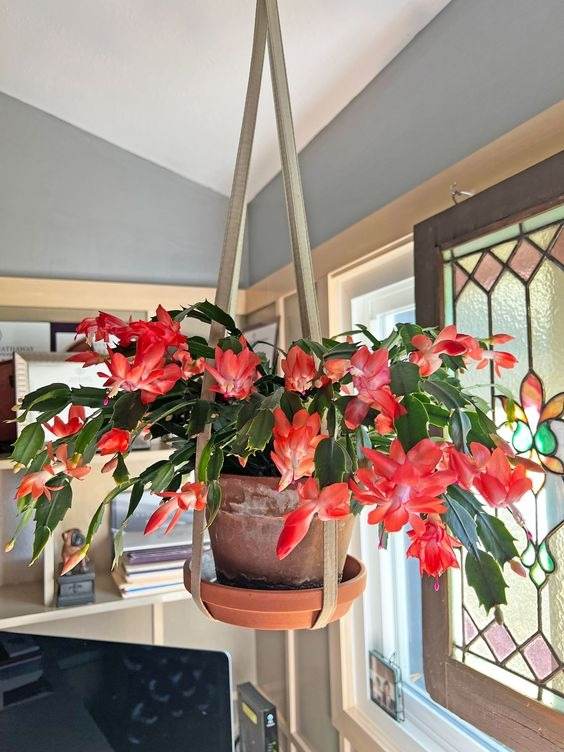
Christmas cactus is a type of cactus that produces clusters of colorful, star-shaped flowers that bloom around the holiday season. It is ideal to place it near a window that receives morning or afternoon sun.
Hanging plants also allow for convenient care and maintenance, making them an excellent choice for those with busy lifestyles or limited time for gardening. In addition, hanging baskets or macrame hangers can be easily accessed for watering, pruning, and caring for your plants, streamlining your gardening routine.
To keep updated with more indoor plant ideas, practical gardening tips, and creative DIY projects, don’t forget to like and subscribe to our website.
